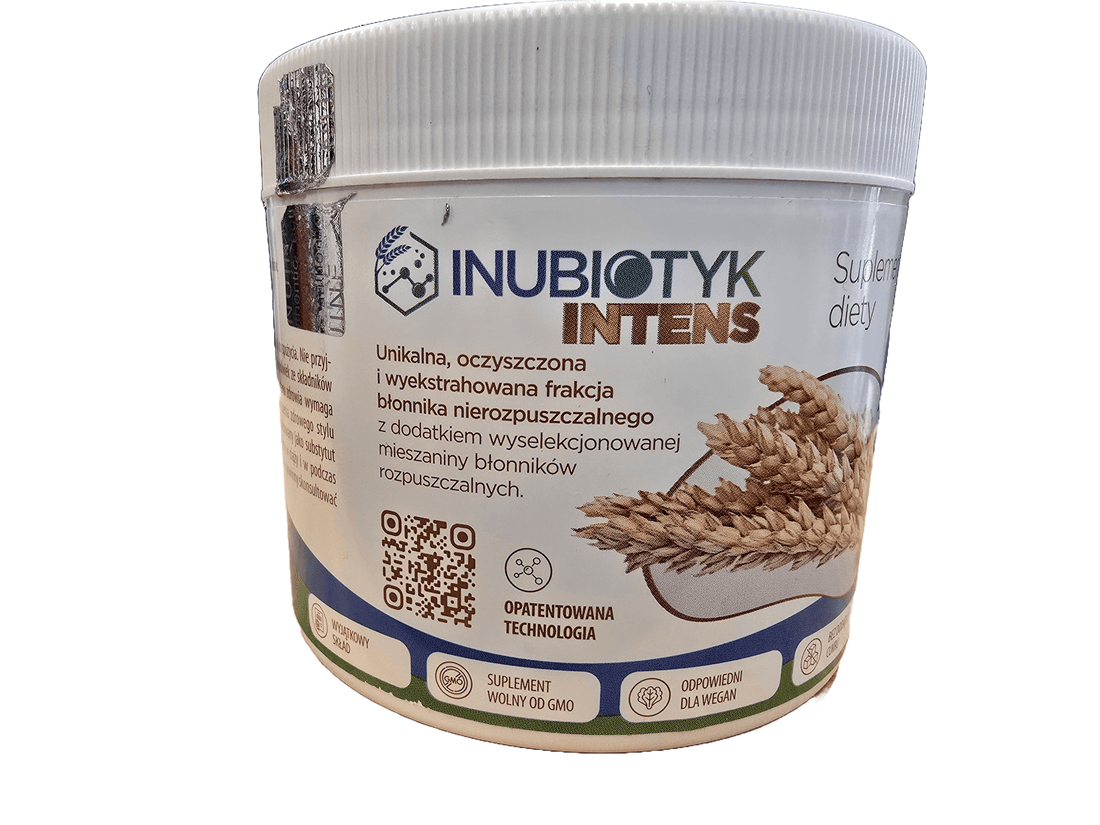
Not All Fibre is Created Equal – Find Out Why!
Share
Can Plant-Based Fibre Contain Harmful Substances?
Dietary fibre is an essential component of a healthy diet, supporting digestion, regulating blood sugar levels, and improving bowel movements. However, some plant-based fibres may contain potentially harmful substances. These include:
Phytates (Phytic Acid)
Found in whole grains, seeds, and nuts.
Can bind to minerals such as calcium, magnesium, iron, and zinc, reducing their absorption.
In excess, they may contribute to micronutrient deficiencies, especially in diets low in these minerals.
Lectins - Present in legumes, especially raw beans.
In large amounts, they can irritate the gut lining and interfere with nutrient absorption.
Proper soaking and cooking of legumes can neutralise their toxicity.
Glucosinolates - Found in cruciferous vegetables (broccoli, cabbage, cauliflower).
Excessive intake may reduce iodine absorption, potentially affecting thyroid function.
Oxalates (Oxalic Acid) - Present in spinach, rhubarb, beetroot, and cocoa.
May contribute to kidney stone formation in susceptible individuals.
Goitrogens - Found in soy and some cruciferous vegetables.
In large amounts, they may limit iodine uptake and negatively impact thyroid function.
How Can Excess Fibre Affect Your Health?
While fibre is vital for digestive health, consuming too much can lead to various health issues:
1. Gastrointestinal Discomfort
Bloating, gas, stomach cramps, and discomfort.
Can cause excessive fermentation in the intestines, particularly in sensitive individuals.
2. Diarrhoea and Loose Stools
Excess soluble fibre (such as beta-glucans from oats or pectins from apples) can increase water retention in the intestines, leading to diarrhoea.
3. Constipation
Ironically, consuming too much fibre without adequate hydration can cause constipation, as fibre absorbs water and can make stool too firm.
4. Nutrient Malabsorption
Insoluble fibre may speed up intestinal transit, reducing the time available for nutrient absorption.
High fibre intake can reduce the absorption of calcium, iron, zinc, and magnesium, potentially leading to deficiencies.
5. Impaired Bowel Function
Long-term excessive fibre intake may overstimulate the intestines, triggering symptoms of irritable bowel syndrome (IBS) in some individuals.
Safe Fibre Supplementation – Inubiotic
To avoid the negative effects of excessive fibre while benefiting from its health properties, Inubiotic is an excellent solution. Thanks to patented technology, this unique product is completely purified of all anti-nutritional substances, making it safe and effective for a range of health concerns, including:
Loose stools and recurring diarrhoea,
Dysbiosis (imbalanced gut microbiota),
Inflammatory conditions of the gastrointestinal tract,
Autoimmune diseases,
Cardiovascular and oncological conditions,
Fungal infections of the digestive system,
High-fat diets (such as keto),
Diets based on processed foods and fast food consumption.
Due to its advanced purification process, our Inubiotic is free from substances that may interfere with nutrient absorption, making it an ideal choice for those prioritising gut health.
https://mj-4u.com/products/inutobiotyk-intense
Conclusion
Fibre is an essential component of a healthy diet, but balance is key. To maintain optimal health, it is important to:
* Consume a variety of fibre sources in moderation.
* Stay well-hydrated.
* Limit foods high in anti-nutritional substances.
* Choose Inubiotic, which provides fibre in its purest and safest form.
If digestive issues related to fibre occur, consulting a nutritionist and adjusting fibre intake according to individual needs is advisable.
